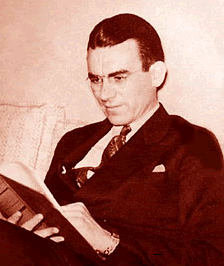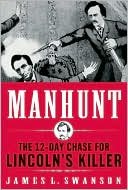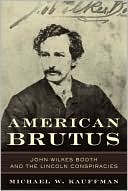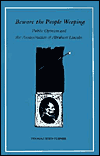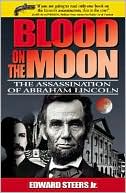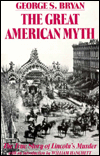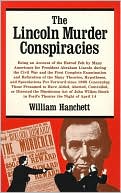1883 was not a good year for Everton J. Conger.
He was forced to travel over 3,000 miles to hold 12 terms as an associate justice on the Montana Supreme Court. For a man who had twice been wounded during the Civil War, and who still suffered from the effect of those wounds, that trip had to be pure hell.
Indeed, Conger was forced to consume large amounts of alcohol, and in some cases, morphine, just to make it through the day. The effects of those drugs were soon to become a point of contention in what turned out to be Conger’s greatest challenge since surviving the war.
Just why anyone would want to be a territorial justice is hard to explain. In addition to rough roads and long trips, often in inclement weather, the pay wasn’t that great, even when it arrived. One historian remarked that pay was so bad that a territorial governor had to raise sheep just to make ends meet.
Conger had been appointed to the bench in 1880 by President Rutherford B. Hayes. It was yet another time when Hayes, who knew Conger most likely through Hayes’ uncle, Sardis Birchard, intervened in Conger’s life. The first was in 1861 when Hayes suggested that Conger try to raise a company of soldiers on his own, which he did. The second came in 1865 when Hayes, serving in the House of Representatives, helped hammer out a deal that allowed Conger to receive $15,000 of the $75,000 reward offered by the War Department for the capture of John Wilkes Booth.
When Conger arrived in Montana, he did so alone. It’s unclear if his wife, Emma, refused to go or the couple decided she should stay at home with her family in Ohio. That would also factor into what was facing the jurist. With no family close at hand, Conger returned to an old passion—gambling. Indeed, if his memory is to be believed, Conger said in one newspaper interview that he knew who Booth was because they both frequented the same gambling dens in Washington.
Life on the circuit wasn’t for the faint of heart. In 1943, Llewellyn Callaway painted a picture in an article on territorial judges that is hard to believe. During a case, a juror who attended court did so without a jacket. Asked by the judge to go home and get one, the juror complied. After a half hour, the judge asked the sheriff if he had seen the errant man. He had, the sheriff replied. He told him he was going home to get his coat.
“Where does he live?” the judge asked.
“About 40 miles from here,” was the reply.
When the territorial courts were established in the 1860s, conditions were so raw and unsettled that court was often held in saloons, prompting one newspaper to describe one “courtroom” as “devoted promiscuously to justice, dances, sermons, itinerant shows, and other useful and ornamental institutions.”
In two years on the court, Conger handled cases peculiar to western expansion, ruling on such mundane matters as water rights or violations of laws prohibiting giving alcohol to Indians. But in 1883, Conger was to find out just how rough territorial politics could get.
In 1882, Territorial Governor B.F. Potts discovered that a county commissioner in Custer County was not a legal resident. Residents urged Potts to get rid of the entire commission, but he said he had no legal power to act.
When John Schuyler Crosby was appointed governor in 1883, he rammed a measure through the territorial legislature that vacated the Custer County offices and appointed three interim commissioners before another election could be held.
Democrats were furious at what they felt was the usurping of power by the Republican Crosby. For reasons unknown, the incumbent Custer County Commissioners also had a Republican supporter—Conger. Crosby never saw a problem with fighting anyone who got into his way, Conger included. So Crosby and Wilbur F. Sanders, who themselves fought over political appointments, conspired to remove Conger from office using the one issue they could exploit—his drinking and morphine addiction.
Conger and Sanders crossed paths several times in the three years Conger was in Montana. Seething below the surface of this political feud was a personal one between Conger and Sanders, which erupted after Conger ruled against one of Sanders’ biggest clients, the Northern Pacific Railroad. Indeed after the suspension was approved by President Chester A. Arthur, Conger wrote a letter to an Ohio friend in which he referred to Sanders as “a malign Satan in human form.”
Conger was suspended due to “incompetence, neglect of duty, gambling, drunkenness and keeping companionship of low, vile people.”
Conger’s enemies were elated. “A meeting of citizens here today thank you most heartily for the removal of Judge E.J. Conger…are hunting a cannon to fire a salute,” read a telegram to Arthur.
Conger, however, was not with out his supporters. “Important suits pending…jails of district full of prisoners. If courts are not continued, public interests will suffer. Please have suspension of Judge Conger revoked pending investigation of charges,” read yet another telegram sent to Washington.
A Montana paper, controlled by the Democratic party, said the charges against Conger were “hasty and ill-advised and the agitation which brought it about had its origin with certain parties who have been unable to fashion his course according to their own chart, and could not use him as a stepping-stone to their individual benefit and profit.”
Conger’s supporters were able to persuade the administration to appoint an investigator to look into the charges. When Peter Shannon arrived in Helena on May 30, 1883, he set in motion a hearing which, once done, would take a month and would produce over 1,,000 pages of documents, which today reside in the National Archives in College Park, Md.
In his report, Shannon wrote “Forty witnesses were examined in behalf of Judge Conger.” However, many of those witnesses were not of the best character, several who either had cases pending in criminal court or had been convicted of some crime.
While Conger’s accusers claimed to be concerned with his judicial ability, it is interesting to note that not everyone in his jurisdiction agreed that he was incompetent. While charges were made in Gallatin and Custer counties, none were offered from Madison or Beaverhead counties. This has prompted historian John D.W. Guice to question the political nature of the charges, pointing out that it seems unlikely Conger would act one way in two counties and another in the other two.
After listening to a month’s worth of testimony, Shannon ruled that Conger’s gambling habits were “unbecoming, unseemly, and indecorous; and that they were unsuitable to the office of Justice of the Supreme Court of Montana and Judge of that District…”
While accepting that Conger’s wounds most likely contributed to his alcohol use, which caused him to appear drowsy on the bench, Shannon said that there were too many other occasions when Conger was drinking to be medicinally necessary.
In the end, Shannon wrote that “He was, and still is, respected at his home in Virginia City. His influence in Madison and Beaver Head counties, is, I think, unimpaired. But the bulk of the business of the courts of the District has been done at Bozeman and Miles City, where his reputation is greatly injured.” Saying that if a new district was created in the counties where Conger’s reputation was fine, he “would now fill such Judgeship well, and with satisfaction to the people and attorneys there.”
In closing, Shannon pointed to Conger’s military service as the main reason he should be shown mercy. “His honorable services in the War for the preservation of the Union, his crippled condition, and his physical sufferings, plead strongly for mercy, which I beg may be shown to him.”
Conger was reappointed to the bench, but it was just one day before his term was set to expire. He was out of a job.
It’s too early in my research for any solid conclusions as to the role politics played in Conger’s suspension, but I think it’s easy to see where the feud between Conger and Sanders is a definite factor. That Conger was shown mercy by Shannon, I think, lends some credence to my view that Shannon felt sad for the captor of Booth and Civil War hero, but given the morals of the day, couldn’t just “let him go.”
